Xiangqing Li
A Field Calibration Approach for Triaxial MEMS Gyroscopes Based on Gravity and Rotation Consistency
Oct 25, 2024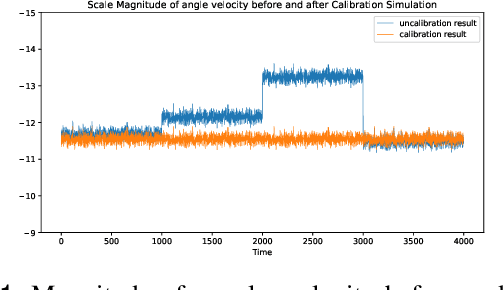
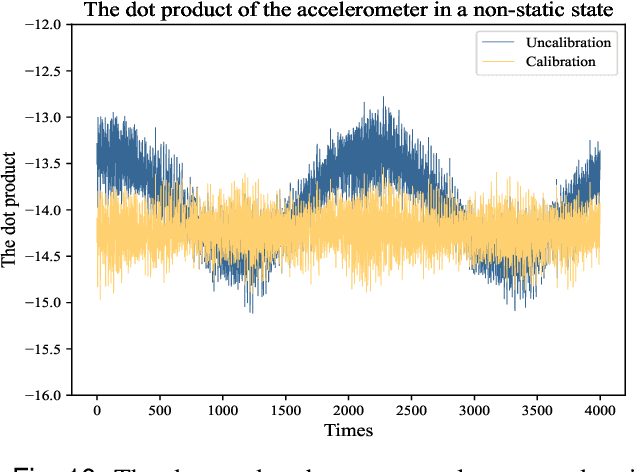
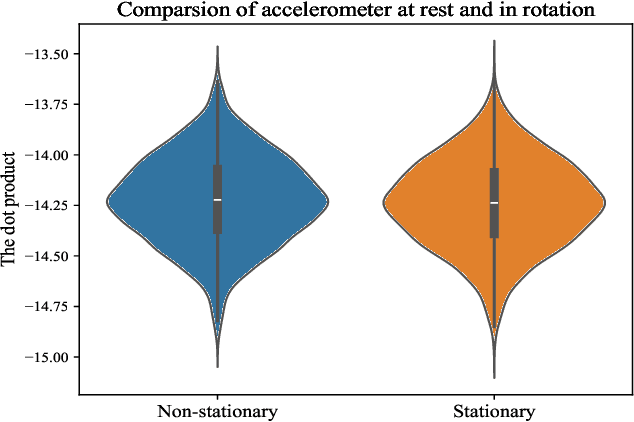
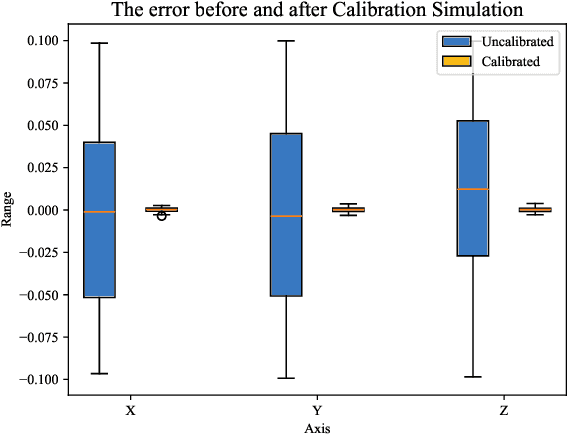
Abstract:This paper developed an efficient method for calibrating triaxial MEMS gyroscopes, which can be effectively utilized in the field environment. The core strategy is to utilize the criterion that the dot product of the measured gravity and the rotation speed in a fixed frame remains constant. To eliminate the impact of external acceleration, the calibration process involves separate procedures for measuring local gravity and rotation speed. Moreover, unlike existing approaches for auto calibration of triaxial sensors that often result in nonlinear optimization problems, the proposed method simplifies the estimation of the gyroscope scale factor by employing a linear least squares algorithm. Extensive numerical simulations have been conducted to analyze the proposed method's performance in calibrating the six-parameter triaxial gyroscope model, taking into consideration measurements corrupted by simulated noise. Experimental validation was also carried out using two commercially available MEMS inertial measurement units (LSM9DS1) and a servo motor. The experimental results effectively demonstrate the efficacy of the proposed calibration approach.
On-site scale factor linearity calibration of MEMS triaxial gyroscopes
May 06, 2024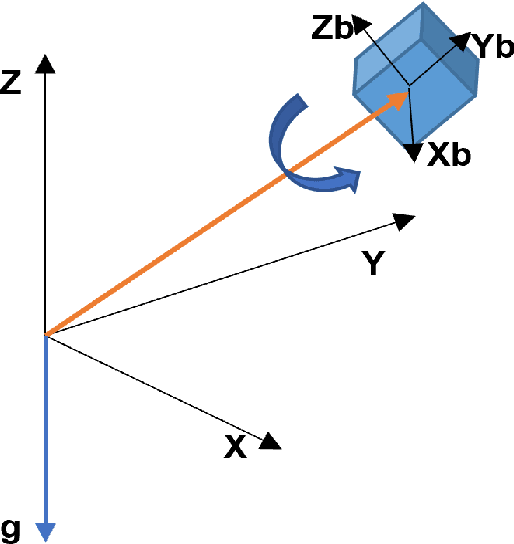
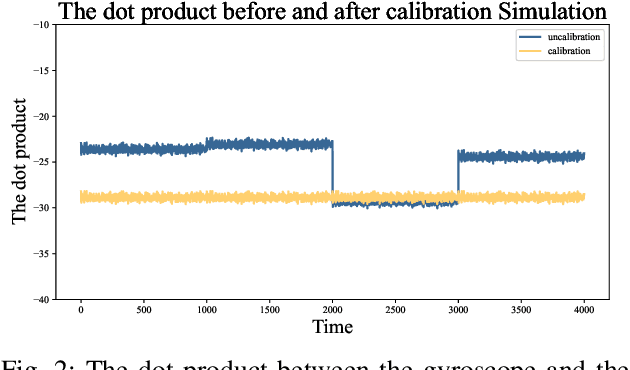
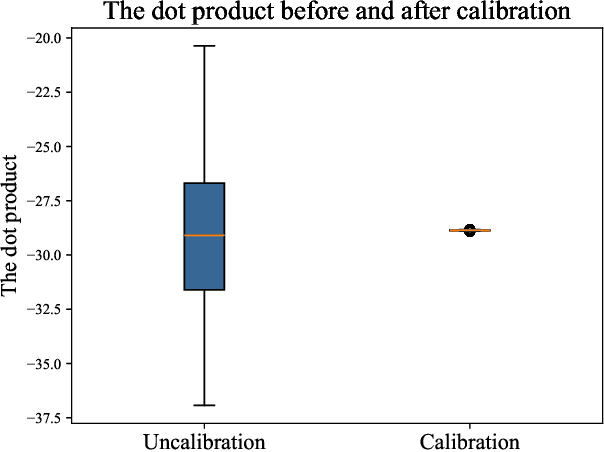
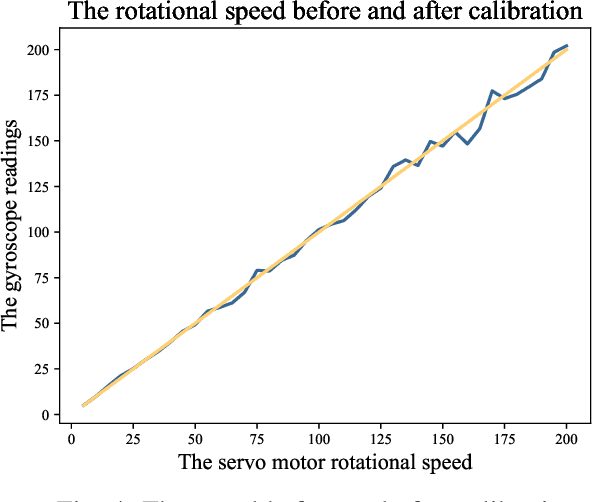
Abstract:The calibration of MEMS triaxial gyroscopes is crucial for achieving precise attitude estimation for various wearable health monitoring applications. However, gyroscope calibration poses greater challenges compared to accelerometers and magnetometers. This paper introduces an efficient method for calibrating MEMS triaxial gyroscopes via only a servo motor, making it well-suited for field environments. The core strategy of the method involves utilizing the fact that the dot product of the measured gravity and the rotational speed in a fixed frame remains constant. To eliminate the influence of rotating centrifugal force on the accelerometer, the accelerometer data is measured while stationary. The proposed calibration experiment scheme, which allows gyroscopic measurements when operating each axis at a specific rotation speed, making it easier to evaluate the linearity across a related speed range constituted by a series of rotation speeds. Moreover, solely the classical least squares algorithm proves adequate for estimating the scale factor, notably streamlining the analysis of the calibration process. Extensive numerical simulations were conducted to analyze the proposed method's performance in calibrating a triaxial gyroscope model. Experimental validation was also carried out using a commercially available MEMS inertial measurement unit (LSM9DS1 from Arduino nano 33 BLE SENSE) and a servo motor capable of controlling precise speed. The experimental results effectively demonstrate the efficacy of the proposed calibration approach.
 Add to Chrome
Add to Chrome Add to Firefox
Add to Firefox Add to Edge
Add to Edge